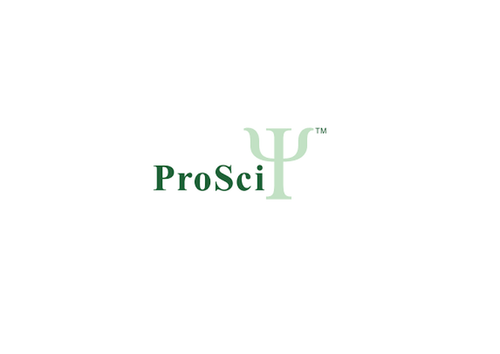Product Description
MAGEA6 Antibody | 62-154 | ProSci
Host: Rabbit
Reactivity: Human
Homology: N/A
Immunogen: This MAGEA6 antibody is generated from rabbits immunized with a KLH conjugated synthetic peptide between 214-243 amino acids from the C-terminal region of human MAGEA6.
Research Area: Cancer
Tested Application: WB
Application: For WB starting dilution is: 1:1000
Specificiy: N/A
Positive Control 1: N/A
Positive Control 2: N/A
Positive Control 3: N/A
Positive Control 4: N/A
Positive Control 5: N/A
Positive Control 6: N/A
Molecular Weight: 35 kDa
Validation: N/A
Isoform: N/A
Purification: This antibody is prepared by Saturated Ammonium Sulfate (SAS) precipitation followed by dialysis
Clonality: Polyclonal
Clone: N/A
Isotype: Rabbit Ig
Conjugate: Unconjugated
Physical State: Liquid
Buffer: Supplied in PBS with 0.09% (W/V) sodium azide.
Concentration: batch dependent
Storage Condition: Store at 4˚C for three months and -20˚C, stable for up to one year. As with all antibodies care should be taken to avoid repeated freeze thaw cycles. Antibodies should not be exposed to prolonged high temperatures.
Alternate Name: Melanoma-associated antigen 6, Cancer/testis antigen 16, CT16, MAGE-6 antigen, MAGE3B antigen, MAGEA6, MAGE6
User Note: Optimal dilutions for each application to be determined by the researcher.
BACKGROUND: MAGEA6 is a member of the MAGEA gene family. The members of this family have their entire coding sequences located in the last exon, and the encoded proteins show 50 to 80% sequence identity between each other. The promoters and first exons of the MAGEA genes show considerable variability, suggesting that the existence of this gene family enables the same function to be expressed under different transcriptional controls. The MAGEA genes are expressed at a high level in a number of tumors of various histologic types, and are silent in normal tissues with the exception of testis and placenta. The MAGEA genes are clustered on chromosome Xq28. They may be implicated in some hereditary disorders, such as dyskeratosis congenita.
 Euro
Euro
 USD
USD
 British Pound
British Pound
 NULL
NULL










